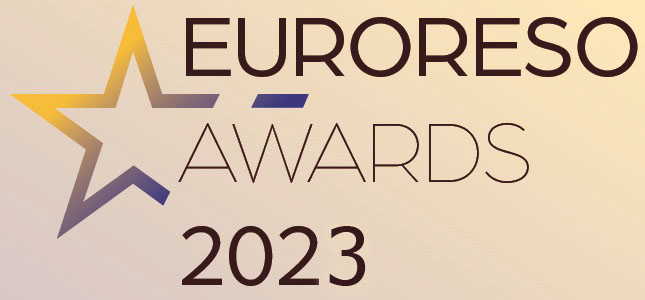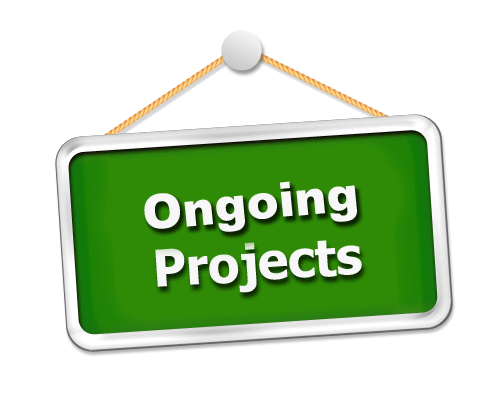WORKIT: JOB LANGUAGE KIT FOR MIGRANTS
SUMMARY
Within the EU, migration and mobility significantly change and contribute to the demographics of each country. Migration could bring to the host society a number of labour, cultural and linguistic benefits, but such benefits can only flow properly if migrants are fully integrated into the community and are able to access the same services as native residents – housing, health, education, employment, etc.
Languages are central to many of the challenges posed by migration and thus migrants have some of the most urgent language learning needs of any language learner. Language deficiencies may add to migrants’ hardships and can form cultural and linguistic barriers which prevent them from receiving necessary assistance, access and inclusion into the new society, educational system and labour market. Without access to the right employment policies and training, migrants may face long-term unemployment and even exclusion from the labour market – with a number of negative consequences, such as social exclusion, marginalization and intergenerational cycles of poverty.
The barriers faced by migrants – whether they are new arrivals or settled and resident – for finding a job in the receiving country include, among others, insufficient skills and experience (especially language barriers, low level of education or a lack of local work experience) and difficulties in navigating host-country labour markets (including poor information about how to present themselves and look for a job).
Labour market integration challenges for migrants in the EU are diverse, ranging from educated migrants working in low-skilled jobs due to none or limited language skills to individuals whose low educational levels, lack of language skills or limited work experience prevent them from actively seeking, finding and keeping a job or demonstrating their relevant skills to employers.
In this respect, better access to information for prospective and resident migrants looking for job opportunities would significantly improve the speed and quality of their labour market integration. Migrants often find it hard to identify the appropriate support even when it is available, so access to, use and perception of labour market information by both migrants and employers is extremely important.
The WorKit project is aimed at facilitating the access of adult migrants to the labour market of the host country through equipping them with a set of language skills necessary for finding a job and providing them with information about local labour market opportunities. This is to be achieved through the development of a multimedia Job Language Kit for Migrants containing language information on work and employment, helping migrants to get employed and making labour market more accessible for them. WorKit will address such migrants through creating a European-wide network of organisations working for the integration and language training of adult migrants, employers’ associations, workers’ unions, job coaching providers, etc.
Objectives:
– Improving language competences of adult migrants for the purposes of labour market orientation and participation.
– Transferring successful models and products and developing new ones for non-formal language learning and thus improving the capacities of organisations and (volunteer) educators working for the integration and language training of migrants.
– Facilitating the access and inclusion of adult migrants into the labour market by providing them with employment-specific information for local labour market regulations in 5 EU countries with urgent migrant integration needs.
Under the WorKit project partners from 5 EU member states will contribute to the realization of the Europe 2020 growth strategy for “75% employment rate for women and men aged 20-64”, including migrants, and “at least 20 million fewer people in or at risk of poverty and social exclusion” by year 2020. The project is also relevant to the European Agenda for Adult Learning which calls for measures to “provide learning opportunities for all, especially disadvantaged groups” and recognizes adult learning as “essential to competitiveness and employability, social inclusion, active citizenship, and personal development across Europe”. Further official EC documents emphasize that “learning the host country language plays an important role in promoting social integration, as well as improving basic skills and employability”. The EU is promoting and encouraging European cooperation to develop common approaches and exchange information on migrant integration issues at EU level.
WorKit will be implemented by 8 organisations from 5 EU countries which will exchange experience and good practices for developing language skills of migrants relevant for the labour market, develop attractive language products for adult migrants containing tips and information on job opportunities and pilot it through a EU-wide network of stakeholders.
Outcomes:
– Network of associated partners – Each partner will establish a network of 7-8 associated partners (organisations), so it is expected the partnership to involve more than 50 migrant organizations, language and VET providers and employers’ associations. The number will be continuously increased also after the project end.
– Collection of over 30 good practices on approaches and practices for social and labour market integration of migrants through language education.
– Needs analysis – Each partner will conduct a survey identifying the needs of the target groups among a minimum of 40 adult migrants and 15 employers, job counselors and VET and language providers working with migrants, or a total of min. 200 migrants and 75 employers and trainers for the entire partnership.
– Job Language Kit for Migrants – Each partner will have 200 copies of the Kit (Textbooks, Phrase Fans, Work Routes), 1,000 copies in total, spread it through the network of associated partners and use it for developing language and communication skills on employment matters both within language courses and for self-learning. Thus the product will reach a considerably higher number of end-users.
– WorKit Online Interactive Tool – Based on the Job Language Kit for Migrants and developed as an innovative tool with educational and informative character that will offer instant, on-the-go support to migrants in their job seeking.
– WorKit Mobile App – Based on the Job Language Kit for Migrants and Online Tool and providing survival tips and phrases for concrete situations as an offline tool for on-the-spot language support for migrants.
– Training programme for educators of adult migrants – Based on the Job Language Kit for Migrants, WorKit Online Interactive Tool and WorKit mobile app and adapted to local specifics and target groups in the 5 partner countries.
– Training workshops – Each partner will organize at least 1 training workshop in its country with a minimum of 15 target groups representatives, or a total of min. 75 people will be trained to use the project products. The strong potential for further multiplication trainings will increase this number considerably.
– Exploitation seminars – Each partner will organize 1 exploitation seminar in its country with a minimum of 30 participants, or a total of 150 people for the partnership.
– Final conference – A minimum of 60 people will participate in the event in the Netherlands, plus target groups representatives from the other partner countries and beyond.
Website of the project: http://www.workit-project.eu
PARTNERSHIP
Pressure Line (The Netherlands) – coordinator
JEST (Bulgaria)
TRADIGENIA (Spain)
Università per Stranieri di Siena (Italy)
St. Dona Daria (The Netherlands)
Inthecity Project Development (The Netherlands)
MI GEN CIC (United Kingdom)
EURORESO (Italy)
Project lifetime: September 2015 – August 2017
The project is co-funded by the European Commission within the frames of the Erasmus+ Program – Strategic Partnerships


